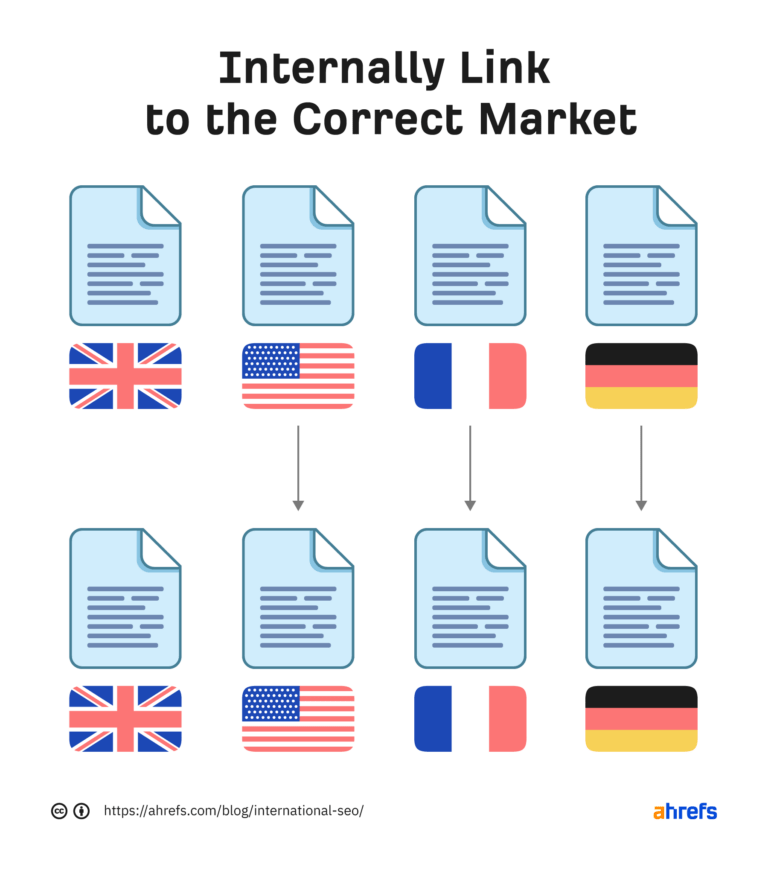From Localization to Globalization: International SEO Basics
From Localization to Globalization: International SEO Basics
Blog Article
Navigating the Digital Landscape: Leveraging International Search Engine Optimization for Cross-Border Success
In today's interconnected digital globe, companies are progressively looking past boundaries to tap into global markets. The intricacy of browsing the digital landscape on an international range requires a nuanced technique, from recognizing the basics of International SEO to carrying out geotargeting and multilingual key words strategies.
Comprehending International SEO Fundamentals
Browsing the complexities of international SEO calls for a solid grasp of basic principles to efficiently increase on-line exposure throughout borders. One crucial element of worldwide SEO is recognizing the relevance of localization. This entails customizing web site web content to suit the etymological, social, and industrial differences of target audience. Keyword phrases must be not only translated however additionally adjusted to mirror exactly how users in different regions look for info.
Additionally, having a clear understanding of geo-targeting is necessary. This entails indicating to internet search engine the certain nations or areas a web site is targeting. Implementing hreflang tags is one method to connect this details, making sure that the proper version of a website appears in the search results for a customer in a particular location.
In addition, understanding the influence of neighborhood internet search engine and social media sites platforms is essential for worldwide search engine optimization success. While Google is leading in many regions, nations like China have their own search engines like Baidu, calling for tailored approaches for each system to make best use of on-line exposure (International SEO).

Targeting Multilingual Search Phrase Strategies
Creating multilingual key words strategies is essential for successfully getting to varied worldwide target markets and making best use of on the internet presence across various etymological regions. When targeting multilingual search phrase strategies, it is critical to conduct extensive research study to understand the specific search terms and phrases made use of by the target market in each linguistic region. This involves not only converting key words however also considering social nuances, local dialects, and search patterns unique to each target market.
To create a successful multilingual search phrase technique, it is essential to focus on significance and search intent. Key words need to line up with the web content on the web site and resonate with the social context of the target audience. Making use of devices such as Google Key Words Planner, SEMrush, or Ahrefs can assist recognize high-performing key words in various languages and evaluate their search quantity and competitors degree.
Moreover, monitoring and evaluating the efficiency of multilingual keywords routinely is crucial for enhancing and refining the technique in time. By continually adapting to adjustments in search behavior and trends, companies can improve their on-line exposure and attract more worldwide web traffic to their web sites.
Applying Geotargeting and Hreflang Tags
When aiming to enhance global SEO approaches, incorporating geotargeting and hreflang tags why not look here is important for optimizing website exposure across various regions. Geotargeting involves tailoring material to particular locations, ensuring that individuals in different areas get appropriate details. By applying geotargeting, organizations can enhance their local search positions and draw in region-specific website traffic.

Optimizing Web Site Framework for Global Visibility
To further enhance international SEO techniques past geotargeting and hreflang tags, optimizing the site framework is crucial navigate to these guys for attaining international visibility and taking full advantage of reach throughout various regions. A well-structured site not only boosts customer experience however also helps with search engine crawlers in understanding the web content and context of the site.
In addition, developing language-specific subdirectories or subdomains can assist online search engine provide the right version of the site to individuals based upon their language choices, additionally boosting the total user experience. Furthermore, enhancing URL structures to consist of pertinent key words and geotargeted terms can boost the site's visibility in various areas. By structuring the website properly for global audiences, companies can boost their opportunities of bring in global traffic and expanding their reach across boundaries.

Monitoring and Analyzing Cross-Border Performance
Effective monitoring and analyzing of cross-border efficiency is important for reviewing the success of international SEO approaches and identifying possibilities for improvement in worldwide reach and presence. By closely tracking essential efficiency indicators (KPIs) across different markets, services can gain useful insights right into the efficiency of their cross-border SEO initiatives. Checking metrics such as organic traffic, keyword positions, conversion prices, and bounce rates can offer a detailed sight of just how well a web site is performing in various regions.
Evaluating cross-border performance data allows services to identify trends, patterns, and locations for optimization. By comparing efficiency across various countries, areas, or languages, companies can determine effective techniques and localize content to better satisfy particular target audiences. In addition, checking cross-border efficiency makes it possible for services to remain nimble and receptive in the ever-evolving electronic landscape. Routine evaluation of SEO performance on a worldwide range guarantees that business can adjust their approaches quickly her explanation to take advantage of arising chances and maintain an affordable edge in global markets.
Final Thought
To conclude, worldwide search engine optimization plays a critical duty in accomplishing cross-border success by optimizing web sites for worldwide presence, targeting multilingual keyword methods, carrying out geotargeting and hreflang tags, and checking cross-border performance. By comprehending the fundamentals of worldwide search engine optimization and enhancing website frameworks appropriately, services can efficiently reach and engage with their target market across different regions and languages. This critical technique is vital for expanding market reach and driving on-line development in today's electronic landscape.
Report this page